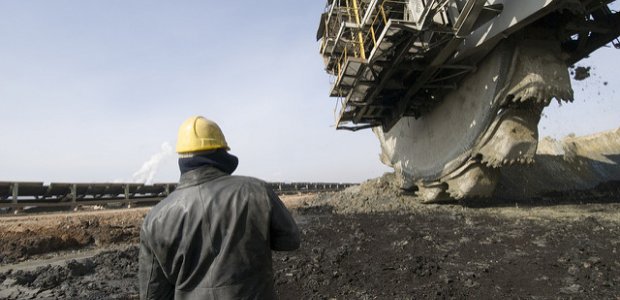The anticipated withdrawal of main power utility PPC carbon-fired units from the country’s energy mix over the next few years, needed as part of the EU effort to meet CO2 emission reduction targets, is expected to not only diminish the utility’s production capacity and number of clients, but the size of its workforce as well.
The fear of job losses is being widely felt across the corporation, from PPC’s workers at the utility mines to management.
Though the subject of PPC’s looming job losses is being avoided at an official level, it has become commonly known within the utility’s ranks that the withdrawal of a capacity totalling 1,800 MW – 1,200 MW at Kardia and 600 MW at Amynteo, both in northern Greece – will make redundant the staff members associated with these operations.
In two years from now, the total capacity of PPC’s coal-fired facilities will have contracted to 2,200 MW from 4,000 MW at present.
PPC’s workforce will be oversized even if Greece manages to keep the carbon-fired proportion of the country’s energy mix at a level of 25 percent, experts have already pointed out.
However, it should also be noted that mining specific coal amounts these days requires more work than in the past as all high-density carbon deposits have been extracted from the exisiting mines. Workers now need to process greater amounts of earth, measuring between 5 and 7 cubic meters, on average, in order to extract one ton of coal, compared to 3 cubic meters in previous years.
A considerable number of PPC workers are approaching retirement age, which should help the utility’s downsize effort. PPC has already offered 15,000-eupo bonus packages to some 200 staff members who have qualified for retirement but opted to carry on working.
PPC’s prospective downsize could serve as a model for other state-controlled companies and utilities.





